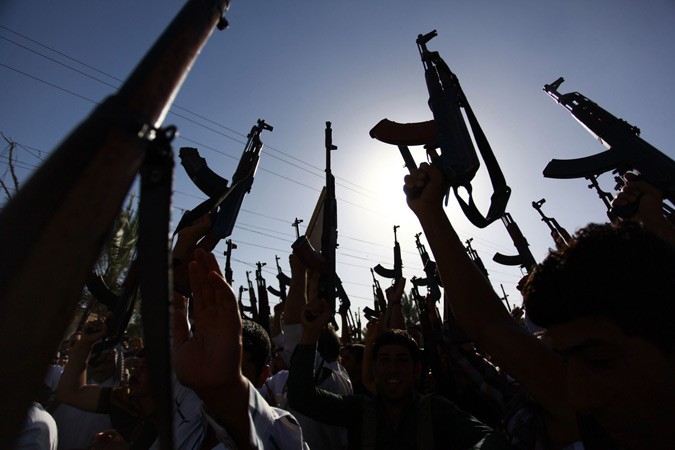In examining the profound implications of mob mentality through the lens of Bahá’í teachings, it becomes essential to delineate the intricate relationship between collective behavior and the erosion of individual conscience. The Bahá’í Faith posits that humanity is inextricably linked through shared morality and ethical principles. When society’s collective consciousness is overshadowed by fervor, chaos can ensue, leading to actions that starkly contravene individual moral compunctions. To elucidate this phenomenon, the following sections will elaborate on the characteristics of mob mentality, its psychological underpinnings, and the teachings of the Bahá’í Faith that advocate for a return to individual conscience and unity.
The multifaceted concept of mob mentality encapsulates the behavior of individuals when submerged in a collective, often losing their personal moral compass. This collective mindset can foster a disconcerting atmosphere where reasoning is eclipsed by emotion, breeding an inclination for impulsive and, at times, destructive actions. The psychological construct operates on the principle of deindividuation, where individuals surrender their self-awareness and personal identity, often subordinating their ethical beliefs to that of the group. This relinquishing of self-awareness is alarming; the essence of the individual is subsumed by the entity of the collective.
Historically, numerous episodes have exemplified the descent into mob mentality, illustrating how ordinary individuals have participated in acts of violence and hostility when part of a group. Referencing the accounts from various turbulent periods, one can discern persistent themes of moral disengagement. In this cacophony of collective fervor, the overarching ethical principles upheld by the Bahá’í Faith become critically relevant, particularly the emphasis on protecting the sanctity of human dignity and fostering a culture of mutual respect.
One of the primary tenets of Bahá’í teachings is the fundamental oneness of humanity. This doctrine challenges the divisive narratives often perpetuated during episodes of mob mentality. Rather than vilifying others based on perceived differences, the Bahá’í perspective encourages a transformative approach—one that seeks to transcend biases and embrace a unified collective identity. This is pivotal in combating the alienation that breeds mob mentality.
Moreover, the Bahá’í writings illuminate the need for individual accountability and the exercise of moral discernment. Each person is urged to cultivate their own understanding of right and wrong, thereby fostering a sense of ethical responsibility. This personal moral framework serves as a bulwark against the allures of conformity that can precipitate mob behavior. Individuality, it asserts, should stand resilient against social pressures, a sentiment echoed in countless teachings from the Bahá’í Writings.
The ramifications of failing to establish an independent moral compass extend beyond the individual; they infiltrate the very fabric of society, often resulting in societal upheaval and injustice. The Bahá’í Faith promotes the idea that ignorance of moral principles can lead societies into disarray. Consequently, the cultivation of knowledge and critical thinking is paramount in maintaining societal equilibrium. By encouraging educational initiatives that emphasize ethical reasoning, the Bahá’í community seeks to illuminate paths towards peaceful coexistence and unity.
In addition, the Bahá’í teachings advocate for consultation as a means of collective decision-making that honors the contributions of each member while prioritizing the common good over individual or group interests. This practice counters the detrimental aspects of mob mentality by ensuring that decisions are made through reasoned discussion, reducing the likelihood of impulsive group actions driven by heightened emotions.
Furthermore, notions of justice are deeply embedded within the Bahá’í teachings. Justice, as a fundamental social principle, endeavors to ensure that the rights of all individuals are upheld, thereby creating an environment less susceptible to the ravages of mob mentality. It is essential to recognize that justice is not merely retributive but should also be restorative, aiming to heal the divisions that may incite collective animosity. In this context, the educated and discerning individual emerges as a key architect of societal harmony.
An essential aspect of fostering resilience against mob mentality lies in the promotion of empathy and compassion. Bahá’í teachings extol the virtues of empathy, urging individuals to recognize the inherent worth of every person. By nurturing a shared sense of humanity, this can counteract tendencies towards mob behavior, specifically the dehumanization that often occurs during such episodes. Compassion serves as a counterbalance to the chaos; it reminds individuals of their shared destiny and the importance of empathy in challenging times.
In conclusion, the dichotomy of mob mentality and individual conscience underscores a critical discourse within the framework of Bahá’í teachings. The teachings advocate for unity, individual moral development, and a collective commitment to justice and compassion. In navigating the complexities of interpersonal relationships and societal structures, it is imperative to remain vigilant against the allure of conformity, fostering an environment where personal ethics guide both individual and collective actions. Through education, empathetic engagement, and unwavering commitment to moral integrity, humanity can aspire to transcend the limits imposed by mob mentality, reclaiming the sanctity of conscience and ensuring a just and peaceful world for all.
